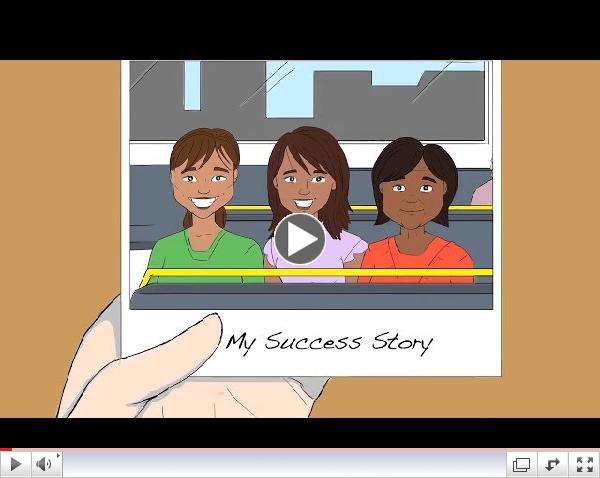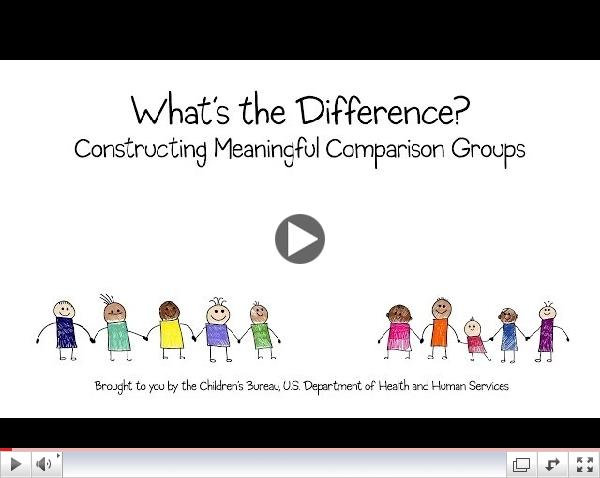|
CHILD MALTREATMENT 2012: Summary of Key Findings

PROTECTIVE FACTORS APPROACHES IN CHILD WELFARE

CLERY AS MANDATORY REPORTERS OF CHILD ABUSE AND NEGLECT

Cost Analysis in Program Evaluation: A Guide for Child Welfare Researchers and Service Providers

Roadmap for Collaborative and Effective Evaluation in Tribal Communities

Children, Violence, and Trauma Series: New Videos
 | | Through Our Eyes: Children, Violence, and Trauma |
The Office for Victims of Crime released four new videos in its Through Our Eyes: Children, Violence, and Trauma series. This series now includes eight videos, accompanying resource guides, and public awareness posters. The most recent videos highlight intervention in schools, innovations in juvenile justice, addressing violence in the home, and a call to action on how anyone can help a child in need.
CHILD WELFARE: Evaluation Videos
The Administration for Children and Families' Children's Bureau announced the Child Welfare Evaluation Virtual Summit Series, a group of videos that tackle an evaluation topic, propose solutions to common evaluation problems, and direct viewers to additional tools and resources. The first three videos have been released and subsequent videos will be released through June 2014:
My Success Story
 | | Casework and Evaluation: Learning From My Success Story |
A caseworker recalls one of her most rewarding and successful child welfare cases, and explains the unexpected role that evaluation played in delivering the services and supports that made a difference for two teenage girls and their mother.
What's the Difference? Constructing Meaningful Comparison Groups
 | | What's the Difference? Constructing Meaningful Comparison Groups |
With the help of animated characters, this video uses straightforward language to explain why comparison groups are important. The narrators introduce four common types of comparison groups, and describe how and when they can be used to strengthen program evaluation. While potentially useful for a wider audience, the video was designed with agency directors and managers, project directors, and program evaluators in mind.

Real Warriors: Peer Support for Military Spouses
Military spouses of service members face unique stressors. They often cope with multiple deployments, frequent moves, long separations, and concerns about their loved one's future. This Real Warriors article discusses the role of peer support groups and programs which can help military spouses connect with other like them. They also can help spouses know that they are not alone when dealing with stress as a result of military life.

Muppet-themed Mobile App Helps Military Kids Adjust to Moving
The average military child moves six to nine times between kindergarten and high school. That's a lot of planning, packing, unpacking, and readjusting - good reasons to start early to get children comfortable with moving. Sesame Workshop and National Center for Telehealth and Technology (T2) created The Big Moving Adventure app to help military families with young children cope with the moving process.
NEW RESOURCES FROM THE NATIONAL CENTER FOR COMPLEMENTARY AND ALTERNATIVE MEDICINE

Clinical Digest: Sleep Disorders and Complementary Health Approaches
This month's Clinical Digest summarizes recent research about some of the complementary health approaches that people use most for sleep disorders, including relaxation therapy, other mind and body practices, melatonin, and several other dietary supplements and botanical products.
New Fact Sheet: Sleep Disorders and Complementary Health Approaches: What You Need To Know
This fact sheet outlines research about complementary health approaches and sleep disorders.
New Fact Sheet: Melatonin: What You Need To Know
This fact sheet outlines what is known from research about melatonin and sleep disorders.

SEE HIGHLIGHTS FROM MAY 1 & MAY 15, 2014 FOR UPCOMING WEBINARS


Clinical Trial Participation Update
Find Clinical Trials by State
Schizophrenia and Genetics
(Outpatient: 1-2 days) This study examines the role genes play in schizophrenia. Eligible participants have a diagnosis of schizophrenia and no serious drug or alcohol abuse. If possible, the siblings and/or parents of the individual are invited for interviews and blood donation. Travel and lodging assistance may be available. Recruiting ages 18-55. [95-M-0150]
National Institute of Mental Health, National Institutes of Health, Department of Health and Human Services. For more information on research conducted by the National Institute of Mental Health in Bethesda, MD visit the NIMH Division of Intramural Research Programs webpage. |